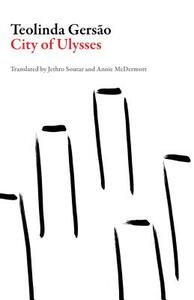Take a photo of a barcode or cover
As a frequent visitor to Lisbon, this was the book I’d been waiting for. It fills a gap in the available English-language books about the city. Nothing else had given me a window onto the life of struggling creative people there in the 1980s and 1990s, before the current tourism boom. Gersão also draws together the threads of some timeless, inescapable themes in Lisbon and Portugal, some of which are embodied in the story of Ulysses. All of this is operating at a higher level than such books as Saramago’s self-indulgent Small Memories, and tells you more about the soul of modern Lisbon than Tabucchi’s lesser works.
Most important, through fiction, Gersão points toward what’s happening in Portugal right now: the slow restoration and recovery of suppressed creative works by fully half its population—i.e., several lost generations of women writers. While endless waiting is a recurrent theme in Portuguese literature, we’re lucky that in 2018 the wait will be over for more English translations of women writers, such as Maria Gabriela Llansol, Florbela Espanca, and Dulce Maria Cardoso, and the writers in the Take Six anthology in the UK.
Most important, through fiction, Gersão points toward what’s happening in Portugal right now: the slow restoration and recovery of suppressed creative works by fully half its population—i.e., several lost generations of women writers. While endless waiting is a recurrent theme in Portuguese literature, we’re lucky that in 2018 the wait will be over for more English translations of women writers, such as Maria Gabriela Llansol, Florbela Espanca, and Dulce Maria Cardoso, and the writers in the Take Six anthology in the UK.
Interesting melancholic love story, but steers a bit too much off to talking about the history of Lisbon from time to time which might be something that rubs some people the wrong way as it does not bring the whole story forward; Gets better towards the end when it actually feels like a proper narrative that has enjoyable speed of progression which I greatly enjoyed! I'm quite sure that people who have grown up in Lisbon have much deeper connection with the whole book VS someone who has been there for a week or so.
I mean the idea is lovely. This book is about love and art, and how this professor, Paulo, loves his student, Cecilia. Oh, how he loves her. And it's not just about the sex. (Although the sex is lovely too.) So far the book isn't cheesy, but it's too...earnest(?) for me to enjoy. Just not my thing.


